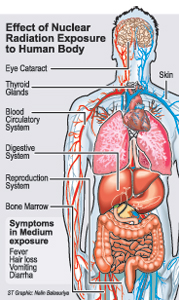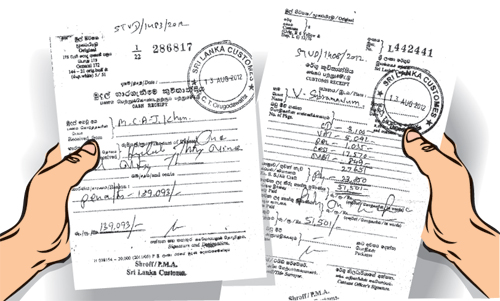News
Radiation detectors at airport on the cards
The Ministry of Civil Aviation is considering purchasing radiation detectors to be installed at the airport to prevent radiation contaminated goods entering the country. Civil Aviation Minister Priyankara Jayaratne told the Sunday Times that discussion will be held this week with the Civil Aviation Authority Chairman on the possibility of installing radiation detectors.
“With the recent detection of contaminated stainless steel kitchenware through radiation detectors at the harbour, there is a possibility of these goods entering the country through flights. This is a serious concern,” the Minister said.

A senior Customs officer at the Bandaranaike International Airport (BIA) confirmed the absence of radiation detectors at the airport and the dire need for it, as there is an increasing likelihood of bringing radiation contaminated goods via air.
“Radiation cannot be detected by scanners, and our officers cannot stop people bringing in items for personal use. We see people bring stainless steel and enamel kitchenware and other items as personal baggage. A radiation detector is necessary at the airport,” he said.
Last week, a container load of stainless steel kitchenware imported from India was detected at the Colombo port to be radioactive contaminated. Consequent laboratory tests confirmed that the stainless steel kitchen utensils contained Cobalt 60, a radioactive material used for radiotherapy and cancer treatment.
The detection was made when the container went through the 12-foot radiation detector Mega Port Project at the Customs. The equipment was installed seven years ago with the assistance of United States, to detect illicit trafficking and radiation, especially to ensure items sent to the U.S are radiation-free.
Atomic Energy Authority (AEA)’s Senior Deputy Director (Radiation Protection and Detection) Anil Ranjith told the Sunday Times that all items coming into and leaving the country, via the port, are subjected to radiation checks.
“These items imported from India were confirmed by laboratory reports to be made of scrap material containing Cobalt 60. The scrap material had not gone through a scan prior to melting,” he said.
Mr. Ranjith said the company was not blacklisted, but the Atomic Energy Regulatory Board of India and International Atomic Energy Agency (IAEA) will be notified, and the contaminated items shipped back to India.
“The consignment will be returned to the supplier within two weeks, and until then, it will be in a special storage at the port,” he said,
This was the first time a consignment entering the country contained radioactive material. Previously, three consignments from India and South America heading to the U.S. via Sri Lanka, were detected with radioactive substances.
Professor Nilamani Hewamanna of Colombo University’s Department of Nuclear Science said that Cobalt 60 is a radioactive chemical isotope widely used in radiotherapy in the country.
“Cobalt 60 is used at Maharagama Cancer Hospital as well as Galle Karapitiya Hospital for cancer therapy. But unnecessary exposure to it can lead to cancer,” she said.This radioactive material is also used for sterilising surgical gloves here, to destroy micro organisms with a half-life (lifespan) of 5.2 years. She said that, apart from medical exposure, one can be exposed to radioactivity through improper disposal of medical and industrial equipment.
“If the contaminated kitchenware is used to store food, there is a possibility of radioactivity entering the body if that food is consumed. There is also a possibility if one spends a lot of time in the kitchen containing such kitchenware. Usually, stainless steel does not have any such effects. But this already contains Cobalt 60. Contracting cancer due to exposure for a period of time, depends on the person and the radiation dose,”Prof. Hewamanna said.
Follow @timesonlinelk
comments powered by Disqus






















